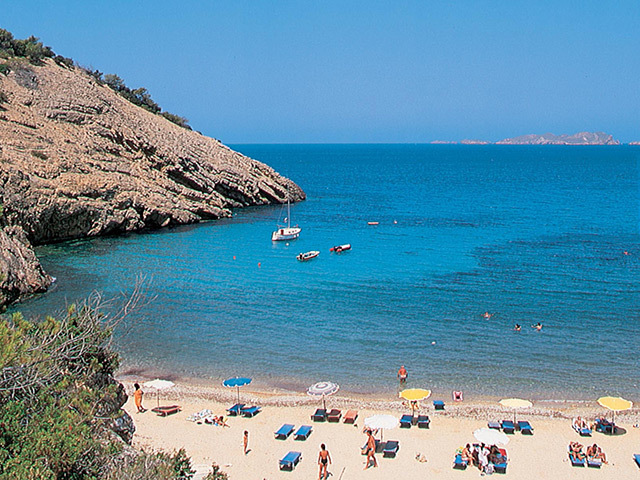
Activists dressed in beach wear have protested outside the headquarters of a North Sea oil company over planned exploration in the Mediterranean.
Greenpeace campaigners gathered at the offices of Cairn Energy in Edinburgh claiming activity around the Balearic islands would threaten the future of tourism, fishing and endangered species such as turtles and dolphins.
Protester Imogen Michel said the waters are particularly sensitive, having been designated a Unesco World Heritage Site.
The marine ecosystem is supported by a seagrass only found in the Mediterranean, she said, adding: “Cairn Energy tried to explore for oil in the pristine wilderness of the Arctic. We successfully opposed them despite threats and intimidation from the company.
“Now they want to move their operation to the sea around Ibiza, threatening dolphins, turtles and the livelihoods of local fishermen.
“We need to cut our consumption of oil by being more fuel efficient rather than going to ever more extreme lengths to get oil that threatens our environment.”
The Greenpeace campaign ship Rainbow Warrior is currently in Ibiza opposing the proposals.
A spokeswoman for the firm said Cairn is working in Spain at the invitation of the government and is at the very early stages of assessing whether to explore.
She added: “The company is currently applying for permission to acquire seismic data only.
“Exploration in the Spanish Mediterranean is not new as it has been going on for almost half a century with nearly 200 wells drilled and over 100,000km of seismic acquired.
“Cairn strongly believes that it is possible to explore for energy resources both sustainably and safely offshore Spain and we have put in place a comprehensive and robust plan with Health, Safety and Environment as our focus and priority.”
A police spokesman said the protest had passed without incident.
It follows previous action in which Greenpeace supporters boarded a platform off the coast of Greenland operated by Cairn Energy2011.
The firm was eventually granted a court injunction, meaning the organisation would have to pay £44,230 for every day it halted the firm’s Arctic project.